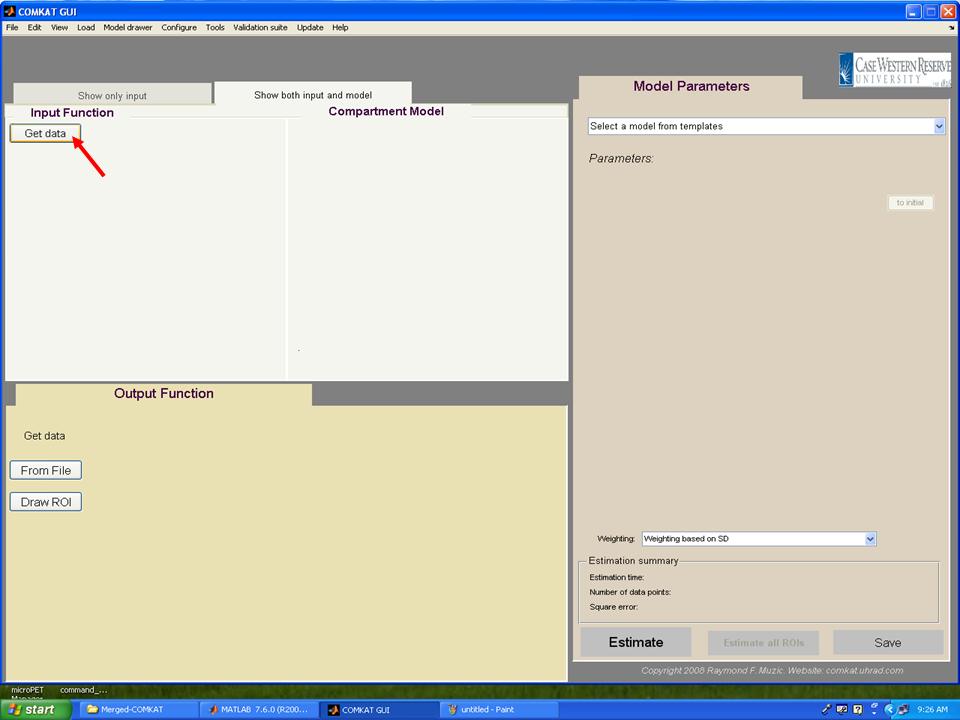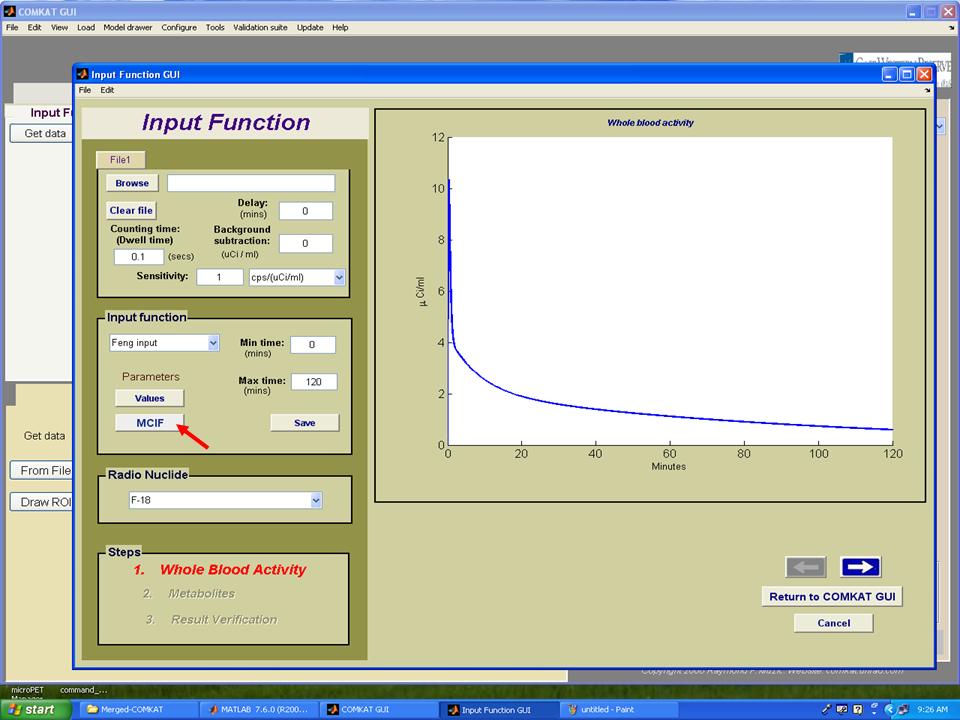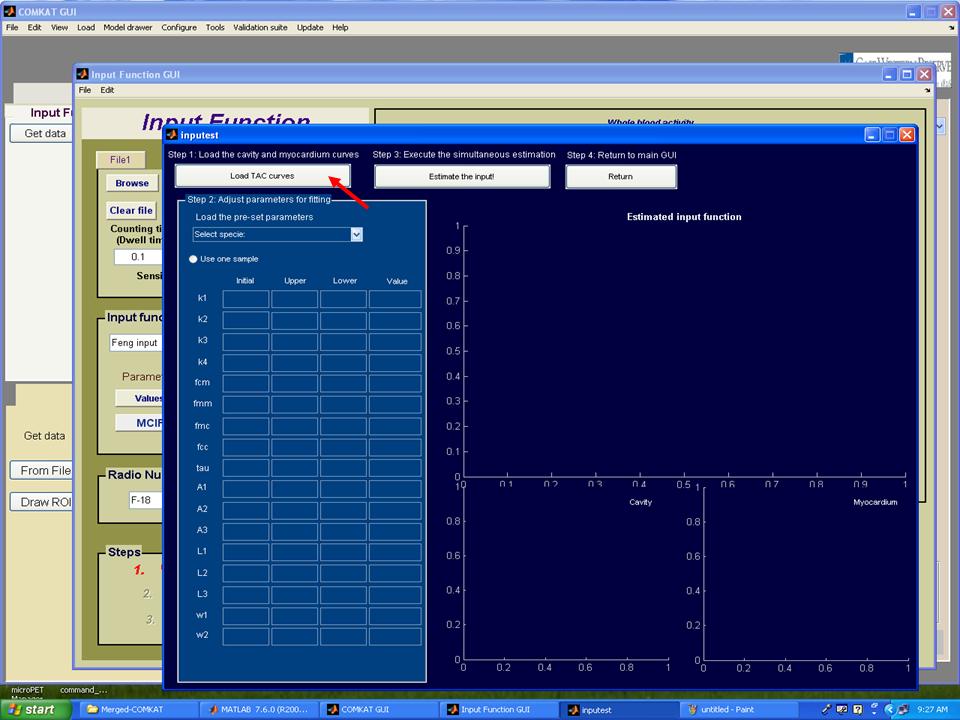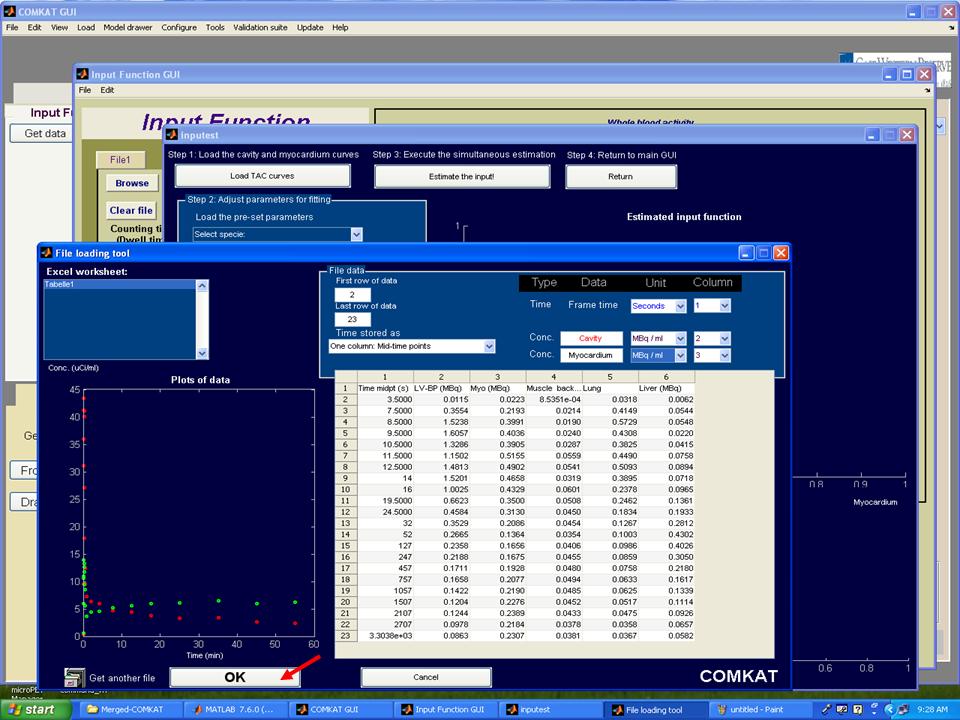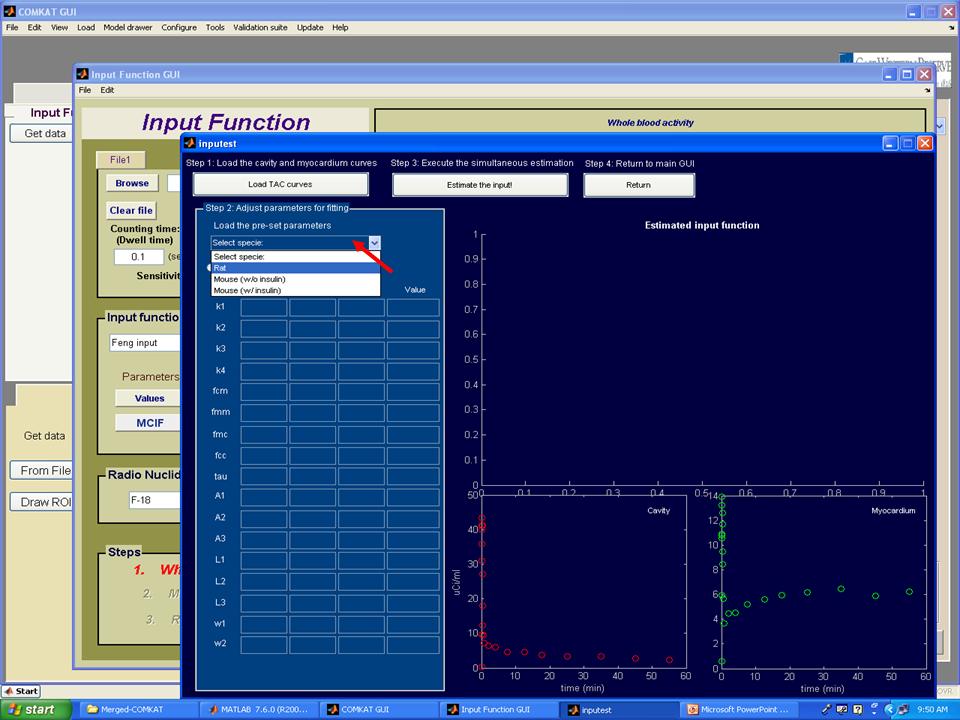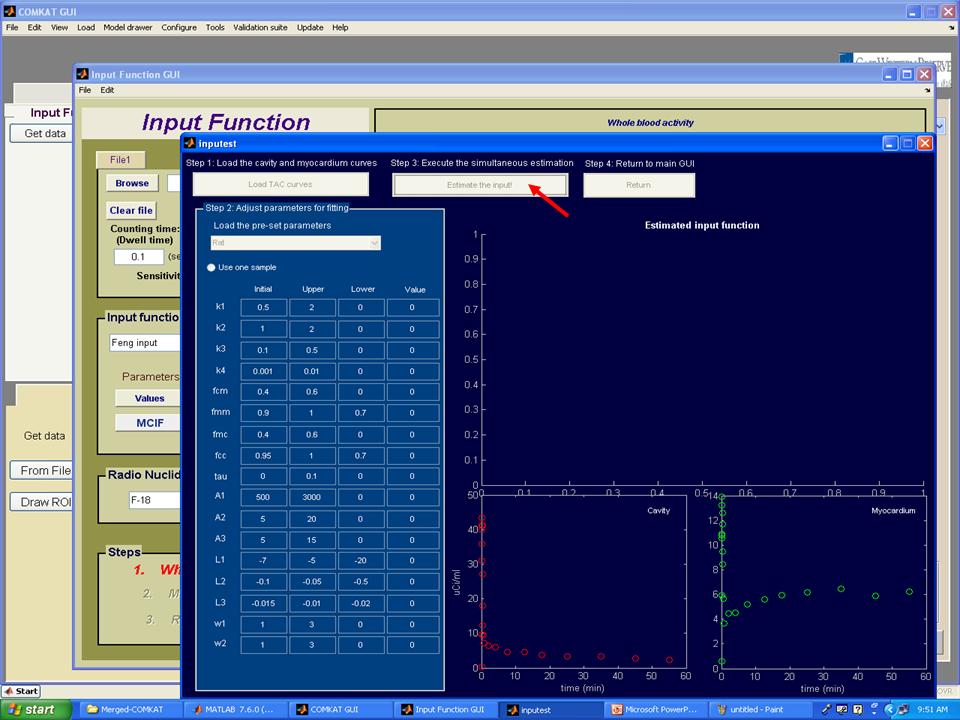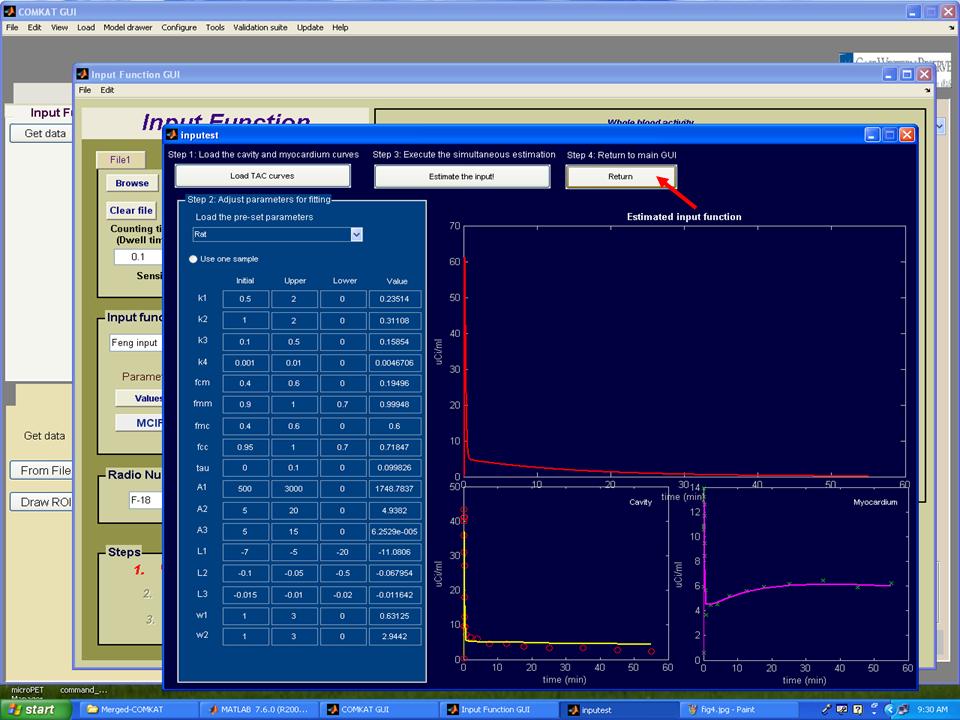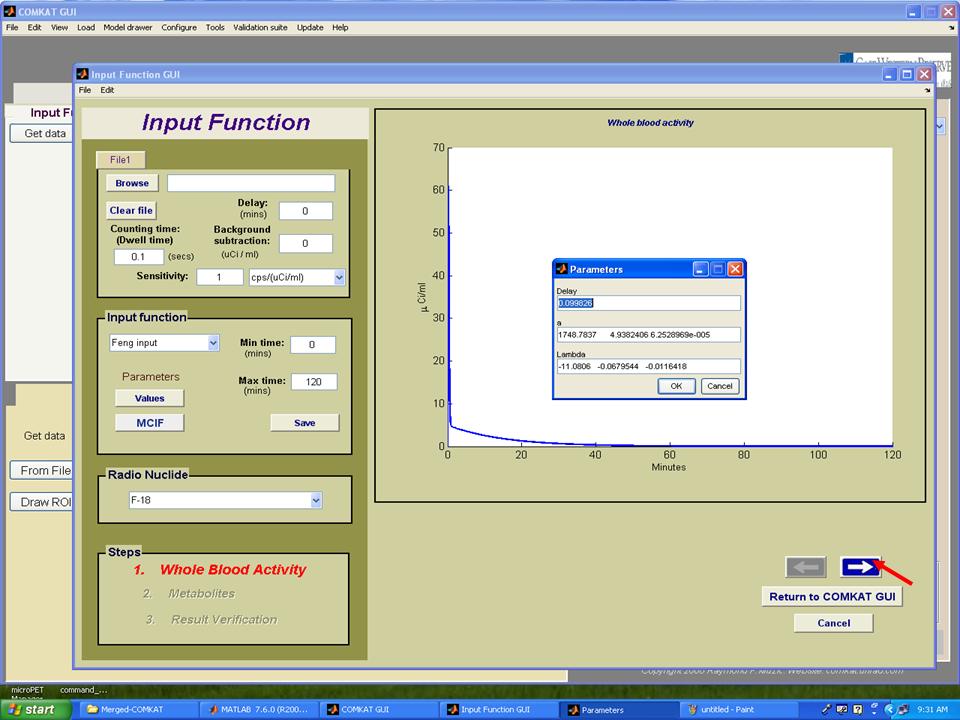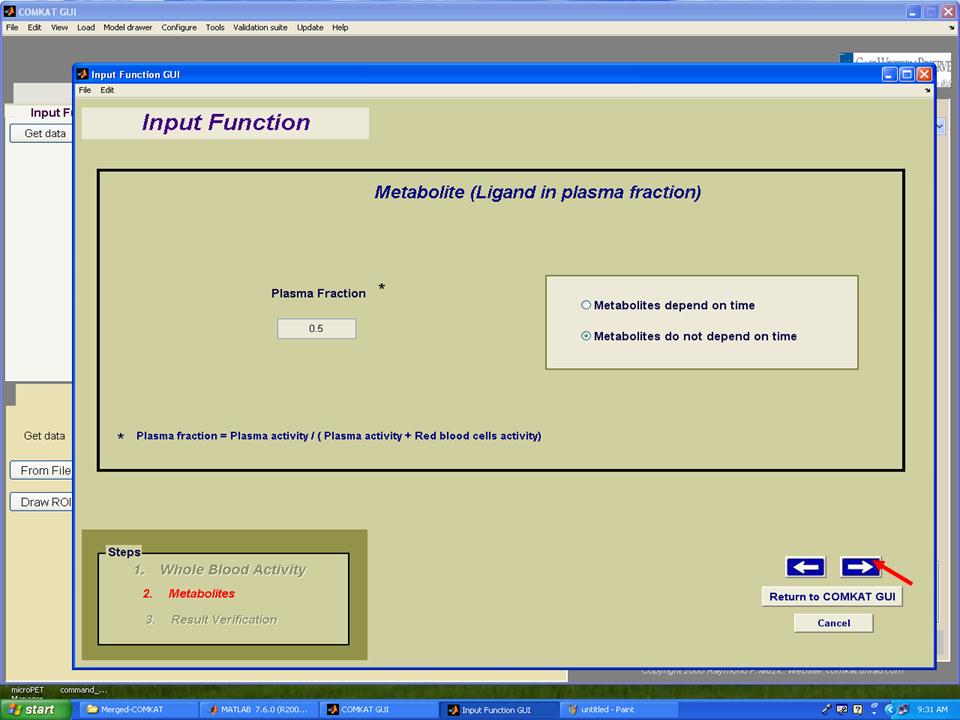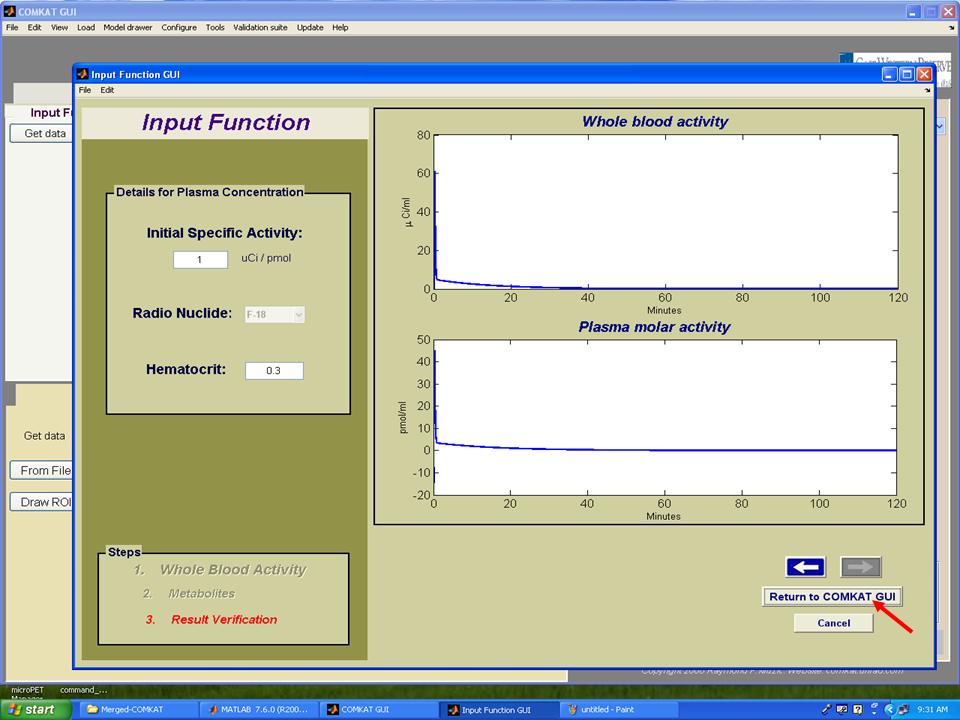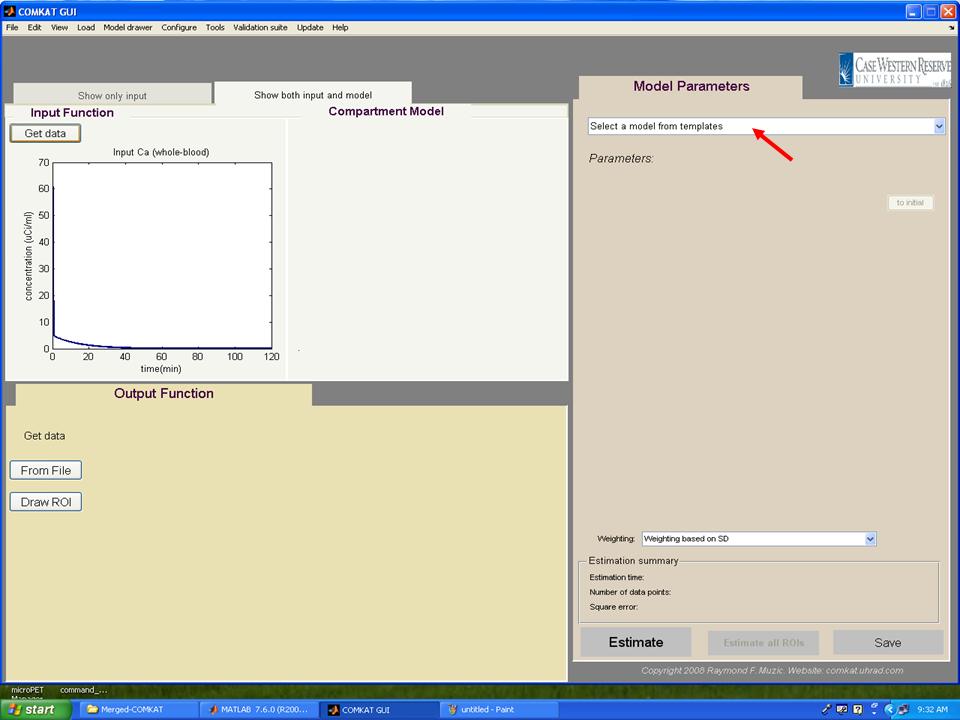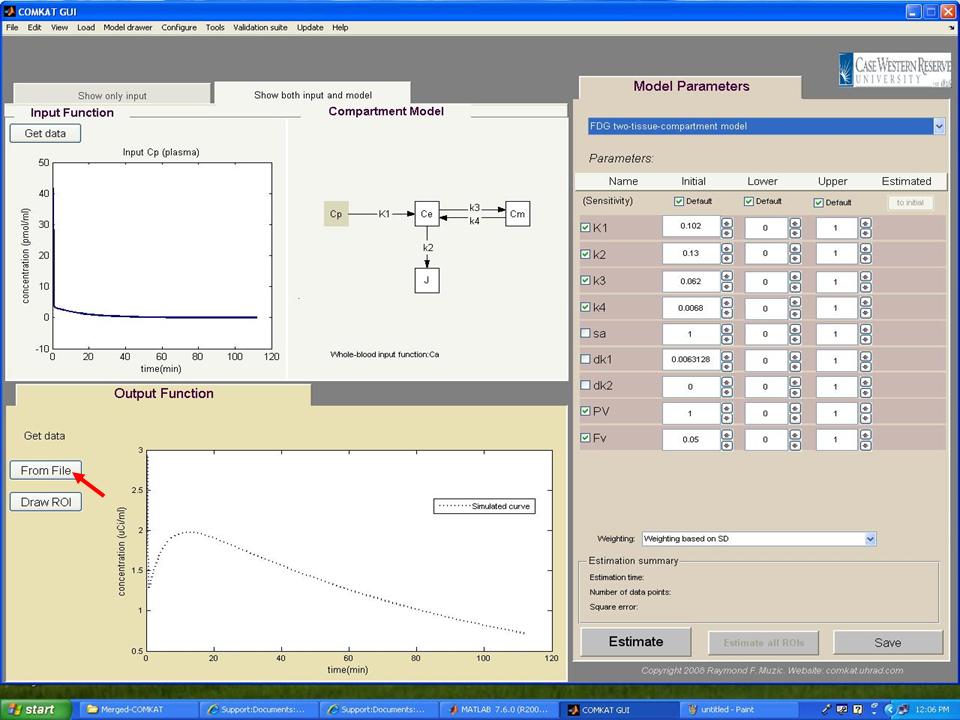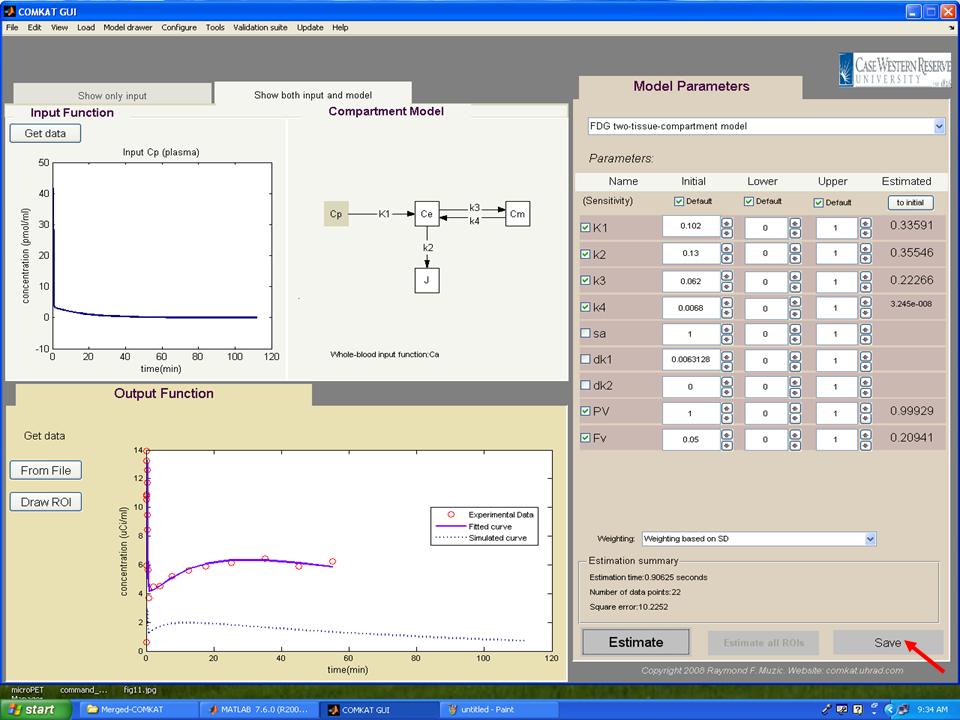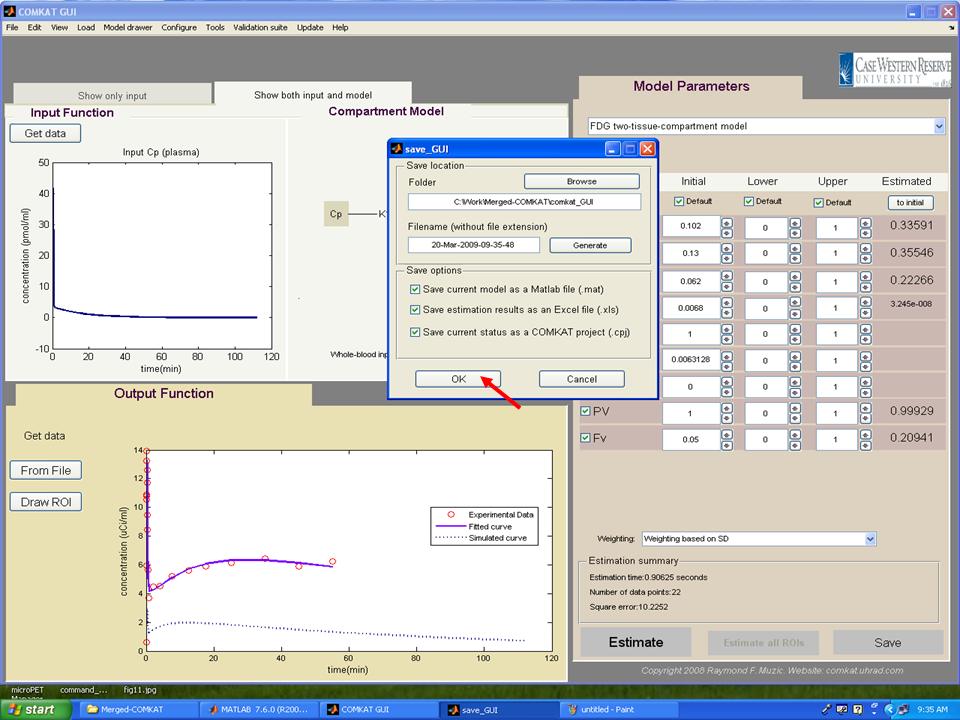Difference between revisions of "Support:Documents:Examples:Model Corrected Input Function"
Jump to navigation
Jump to search
| Line 4: | Line 4: | ||
For 18F-FDG PET studies, the estimation of kinetic rate constants required knowledge of the input finction (i.e., 18F-FDG plasma time activity curve). The standard metod to determine the input function is to measure 18F-FDG activity concentration in the arterial blood. However, this invasive procedure is limited by the small size of blood vessels and the limited blood volume. One alternative way is to estimate the input function non-invasively. | For 18F-FDG PET studies, the estimation of kinetic rate constants required knowledge of the input finction (i.e., 18F-FDG plasma time activity curve). The standard metod to determine the input function is to measure 18F-FDG activity concentration in the arterial blood. However, this invasive procedure is limited by the small size of blood vessels and the limited blood volume. One alternative way is to estimate the input function non-invasively. | ||
| + | |||
| + | ===Example=== | ||
[[Image:fig1.1.jpg]] | [[Image:fig1.1.jpg]] | ||
Revision as of 16:29, 20 March 2009
Model-Corrected Input Function
Overview
For 18F-FDG PET studies, the estimation of kinetic rate constants required knowledge of the input finction (i.e., 18F-FDG plasma time activity curve). The standard metod to determine the input function is to measure 18F-FDG activity concentration in the arterial blood. However, this invasive procedure is limited by the small size of blood vessels and the limited blood volume. One alternative way is to estimate the input function non-invasively.
